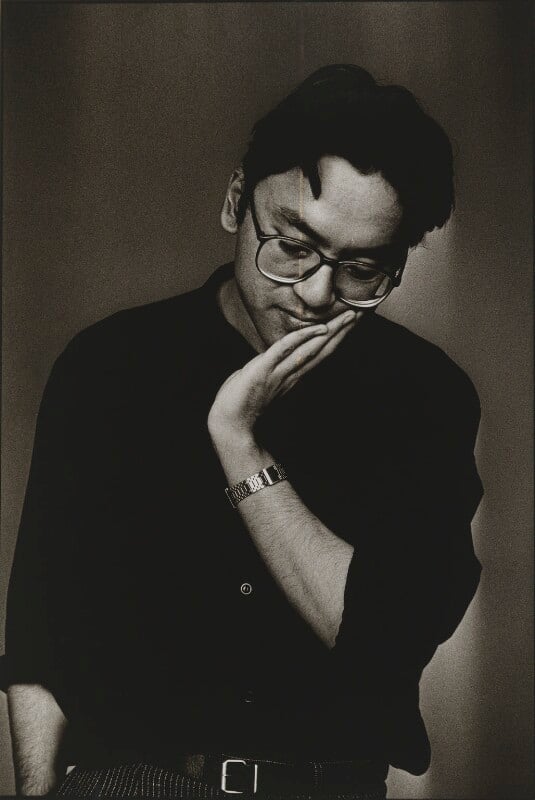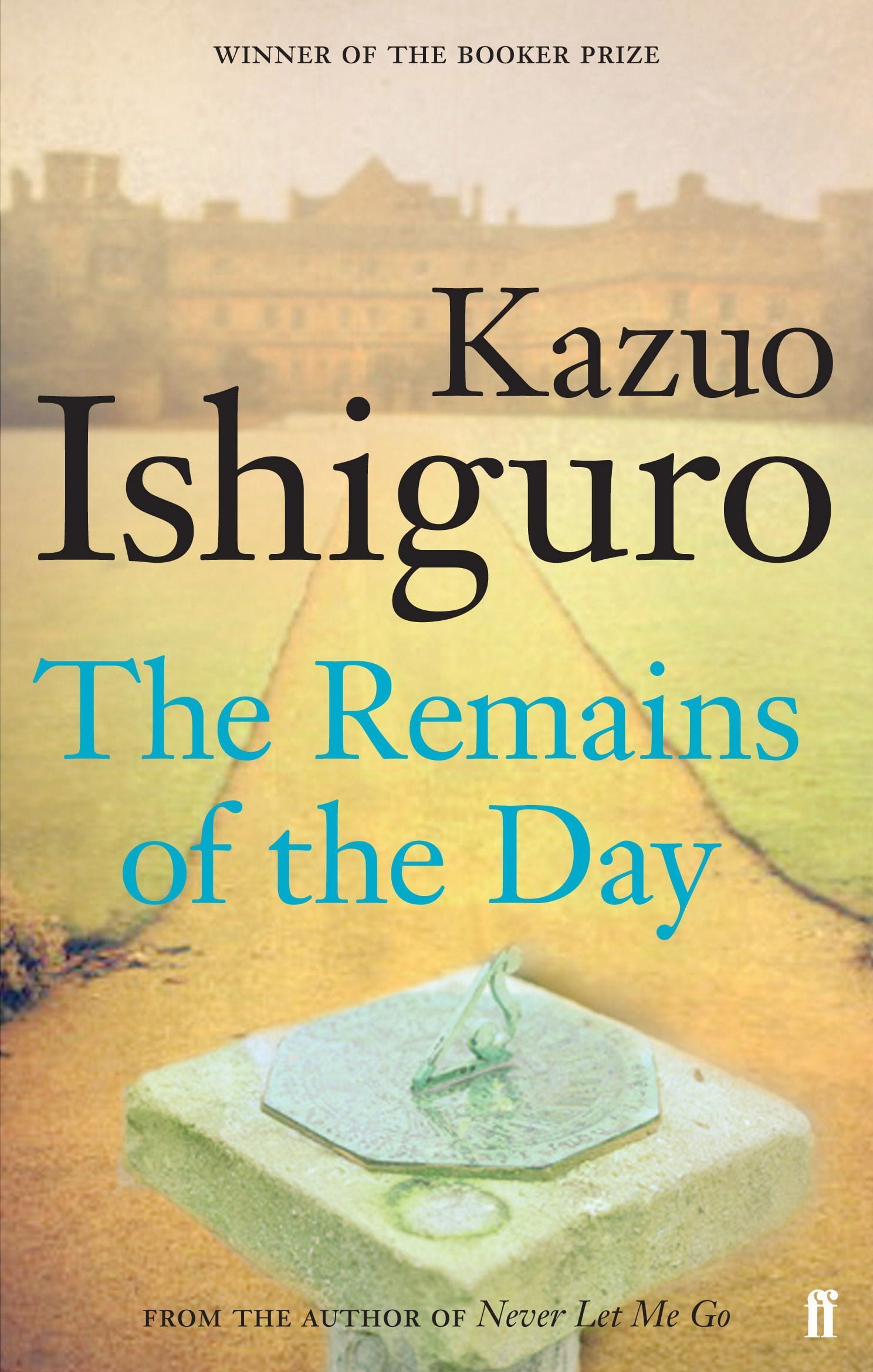Published January 15th, 2023
Review
by Lisa Schantl
As 2022 came to an end, I picked Nobel laureate Kazuo Ishiguro’s prize-winning novel The Remains of the Day (1989) from my shelf, not knowing that it would become quite an apt companion for the turn of the year. After all, the period around New Year’s Eve is filled with considerations about what was, the occasional ‘what could have been’, and the uncertainty of what is about to come. Little was I aware that this book would raise all these questions, not necessarily in regards with a change in the calendar year, but in regards with a whole lifetime stretched before one’s eyes.
As we accompany a butler called Stevens on his probably one and only leisure trip through UK’s South, we learn about his time as chief of staff at Darlington Hall — a place that saw its best days during and between both world wars and has now, after Lord Darlington’s death, become the residency of a rich American gentlemen, with a reduced staff and less glamorous social gatherings. On his way from Salisbury to Dorset and Devon, and back again, Stevens reminisces about his life as a butler for a man that, as the novel reveals in bits and pieces, was not the well-natured and cosmopolitan figure that he intended to be.

In fact, through Steven’s narrations, we get a glimpse of the controversies that kept Great Britain busy between World War I and II. Lord Darlington dabbled in international affairs, especially in the years before the second war, by inviting important people into his house for informal meetings. While he saw himself as a knight for goodness and justice — and was also perceived as that by Stevens — he supported fascist propaganda, Nazi ideologies and the end of democracy. We are also reminded of the controversial attitude of King George VI toward the Nazis in a moment when fiction and historical fact blur and Ishiguro’s in-depth research for this novel comes through.
Although Stevens witnessed some men pointing out the misguided endeavors of Lord Darlington, he did not once during his career question the attitude of his Lord. A behavior that he ponders during the given trip as “dignity.” Through an excellent use of first-person narration, we learn how convinced Stevens was of dignity being first and foremost the quality of staying in line with his professional role as butler and not once letting his personal desires or attitudes get the better of him. However, the account of his trip — shared in almost daily journal entries — reveals a few interactions with other people proposing different interpretations. Though dignity is one of these terms that you can hardly put your finger on, I was rather drawn to a countryside farmer’s idea of it, describing it as “the right to be free citizens,” which ultimately echoes the ideas of feminist thinkers such as Mary Wollstonecraft and Virginia Woolf who saw dignity as the worth of and power over oneself.

In fact, exactly this clash in meanings eventually makes Stevens stop and stare towards the end of his journey. In a conversation with a stranger, he regrets that he never truly acted on his own behalf, that he lived a life entirely steered by someone else: “He [Lord Darlington] chose a certain path in life, it proved to be a misguided one, but there, he chose it, he can say that at least. As for myself, I cannot even claim that. You see, I trusted. I trusted in the lordship’s wisdom. All those years I served him, I trusted I was doing something worthwhile. I can’t even say I made my own mistakes. Really — one has to ask oneself — what dignity is there in that?” Weighing the book in my hands on this first day of a new year, one resolution pressed itself on me: to trust in myself and act in the best way I can, for myself and my fellow citizens. What better advice to gain from a story than that?
Aside from philosophical considerations about servitude and freedom, Ishiguro’s novel also touches upon the themes of love, loss and empathy, or rather the lack thereof. Stevens’ ideology of sacrificing his personal feelings for his professional career did not allow him to care for his own fate, much less for the personal fates of others, and especially not for the other household staff members. In this matter it’s what is not said in the novel that leaves an impression. Stevens appears cold and careless in his conversations with the housekeeper Miss Kenton, and does not even pause when his father — also a member of staff — dies after suffering a stroke. We might refer to his behavior as socially and emotionally incompetent, a deficiency that Stevens tries now to overcome rather awkwardly by learning how to banter for the sake of his new employer. But what is lost cannot be recovered, and so he cannot get back what he might have had with Miss Kenton if he had only trusted himself back then.

For all these aspects and the thoughts it triggered, The Remains of the Day proved to be a good companion for this time of the year. However, I cannot close this review without touching upon the extraordinary style in which it is written, especially for a novel composed in the post-modern era. From the first sentence onward, I found myself catapulted back into the interwar period in England, not for the imagist descriptions of the house and the landscapes — although these are quite captivating too — but for the voice of Mr Stevens. Not once does Ishiguro let his character fall out of his role as an interbellum butler. Ishiguro once stated in an interview with BOMB from 1989 that he spent far more time researching the backgrounds for his novels and outlining his stories than actually writing them. This skill definitely seeps through in The Remains of the Day. For not only is the content carefully crafted, but also the language used in the novel.
Ishiguro came to the UK at the age of five, not knowing that he would spend the rest of his life in this country and not in his native Japan. Neither did his parents, so they kept introducing him to Japanese culture and values throughout his early years. His “indistinct background,” as he refers to it, might have readied him to try a variety of styles and adopt the ones required by his characters, rather than focus on his own, personal voice. In fact, there is one passage in The Remains of the Day that might give away Ishiguro’s preparations for crafting the narrator’s voice for this very novel: In one instance, Miss Kenton catches Stevens reading sentimental romances, upon which the latter thinks to himself as a justification that they were “an extremely efficient way to maintain and develop one’s command of the English language.” I wonder which romances might have served Ishiguro to grow his proficiency of the English way of speaking in wealthy houses between the 1920s and 1960s?
Although it has taken me a few pages to settle into the language and tone of a bygone era, the novel quickly turned into a time machine and took me with it on a historical and linguistic journey. Through the reminiscing of butler Stevens, his attempts in exploring what had been good and just, what could have been done differently, and whether there was still something to regain, I fell into the rabbit hole of my own past year. If there’s a morale to this novel, it might be that there indeed comes a time when it’s too late to act. We’d rather act as long as we can, with the dignity that every single one of us holds.
Want to read more about Kazoo Ishiguro's narrative works? Check out this other review from one of our volunteers!
Nationality: Austrian
First Language(s): German
Second Language(s):
English,
French,
Spanish
Supported by:


Comments on "Reminiscing about Dignity and Unvoiced Love — A Review of Kazuo Ishiguro’s "The Remains of the Day""
Please log in to submit a comment.
Login